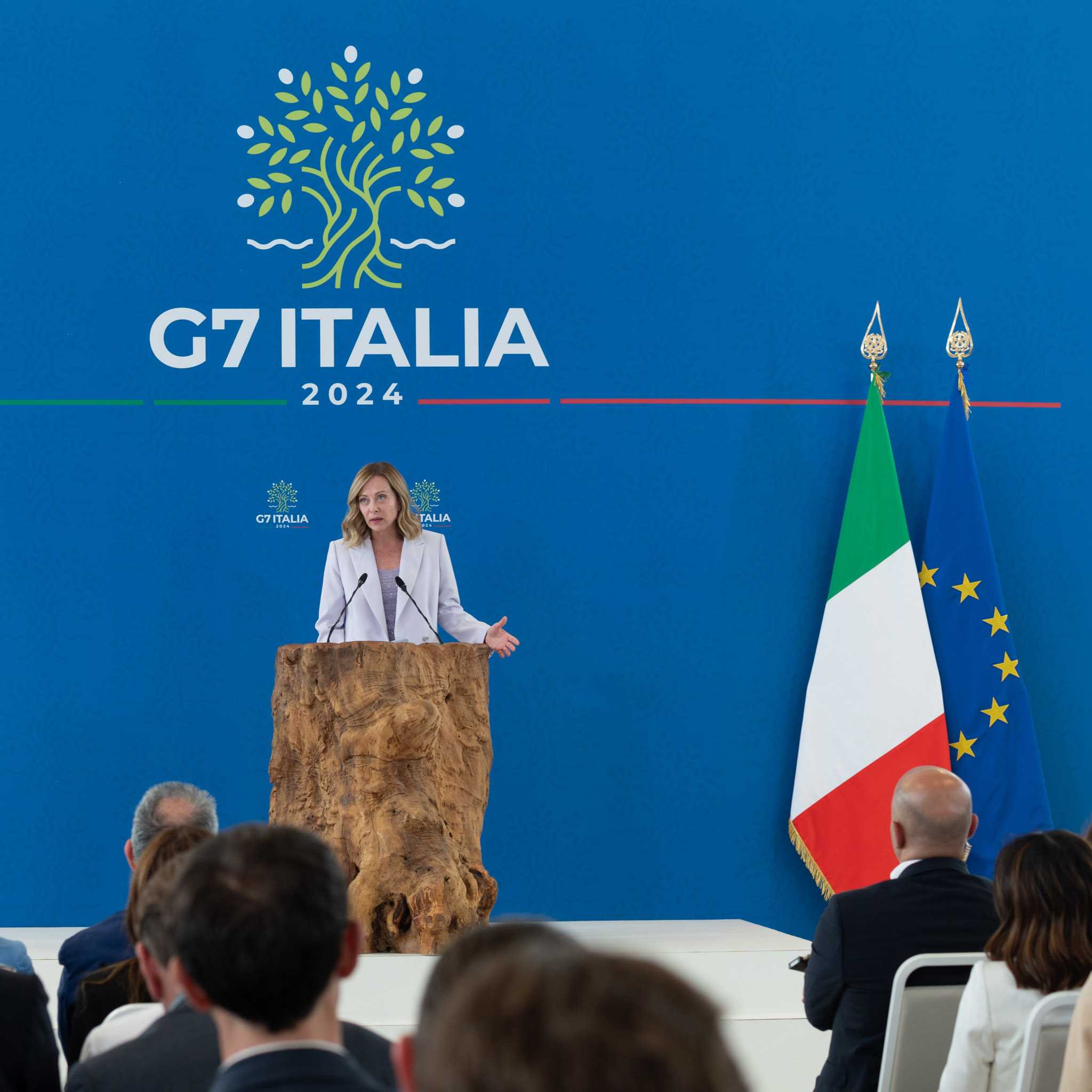
2024 G7 Summit in Apulia: Global Agenda and Business Opportunities
June 21, 2024
The 2024 G7 Summit in Apulia, Italy, from June 13-15, allowed G7 leaders to reaffirm their unity and determination to tackle global challenges. Under the Italian presidency, they addressed international conflicts, climate change, economic security and emerging technologies like generative artificial intelligence. The summit occurred amid political uncertainties for key figures such as President Biden, President Macron and Prime Minister Sunak, as they are all facing challenging upcoming elections, contrasting with the relative stability of Prime Minister Giorgia Meloni’s Italian government.
The outreach session aimed to counter the “West against the rest” narrative by addressing global challenges such as AI, the Mediterranean crisis, cooperation with Africa and climate change. Keynote speakers included Pope Francis and the rotating chair of the African Union. Non-G7 members, such as Argentina, Brazil, India, Kenya, Turkey, Algeria, Tunisia and the UAE, also participated, emphasizing bilateral relations and future collaboration. Bilateral meetings with Brazil focused on ensuring continuity between the G7 Summit and the upcoming G20 Summit in Rio de Janeiro, particularly regarding Africa, AI, energy transition and food security.
The final communiqué underscored the Italian presidency’s commitment to addressing key priorities and urgent global challenges, highlighting the critical role of the private sector in tackling these issues.
The Middle East and Ukraine were key topics at the 2024 G7 Summit. The G7 Italian presidency has actively engaged in addressing the conflict between Hamas and Israel, advocating for a peaceful resolution through dialogue. Concurrently, the G7 has unified in its stance on maritime security, condemning attacks on shipping routes and emphasizing the importance of safeguarding international trade.
On Eastern Europe, the G7 condemned Russian war against Ukraine and committed to Ukraine’s economic recovery through two main initiatives:
The 2024 G7 summit highlighted significant concerns regarding China’s influence in the Indo-Pacific region, emphasizing the importance of political stability and economic cooperation while advocating for trade liberalization in accordance with World Trade Organization rules. Leaders reached a consensus on the need for stable and equitable economic relations with China, despite Beijing’s non-market policies and their impact on foreign enterprises.
The G7 recognized the crucial role of business in this context. Leaders called for public and private sectors to strengthen the resilience of supply chains for strategic goods, coordinating joint responses to economic vulnerabilities in key sectors. This proactive stance and ongoing strategic engagement with business partners aim to ensure that global economic interactions remain robust, fair and beneficial while keeping threats under control. They also urged China to avoid implementing export controls, particularly on critical minerals, to prevent disruptions in global supply chains.
AI was a cornerstone of the Summit’s agenda, yet G7 Leaders did not achieve consensus on international AI governance. Pope Francis stressed a human-centric approach to AI, advocating for ethical guidelines and policies to manage its risks and benefits. The G7 tasked labor ministers with developing an AI action plan to enhance productivity, quality jobs and global skills development, leveraging private sector initiatives. Leaders also endorsed the G7 Toolkit for AI in the Public Sector and supported Italy’s AI Hub for Sustainable Development, to be detailed further at October’s Technology Ministerial Meeting.
Discussions on AI and technology underscored leaders’ expectations for a collaborative approach from the private sector. They emphasized the need for bolstering competencies, cyber-resilience, ethical standards and addressing challenges such as misinformation, semiconductor shortages and geopolitical tensions. This presents tech companies with a unique opportunity to engage in public-private partnerships, offering innovative solutions while prioritizing transparency and accountability.
The G7’s proactive engagement with Africa, highlighted by initiatives like the Apulian Food Security Initiative and Energy for Growth in Africa, reflects strategic leadership under the Italian Presidency. These efforts in energy and food security, coupled with support for local entrepreneurship, align with Africa’s growing economic significance and aim for sustainable development.
Additionally, the G7’s endorsement of the G20 Compact with Africa underscores the continent’s potential as an emerging market, paving the way for increased private sector investment, especially in the energy sector and fostering regional cooperation.
These initiatives will be coordinated through the EU’s Global Gateway, which focuses on infrastructure development in developing countries, and Italy’s Mattei Plan, Prime Minister Meloni’s roadmap for partnerships and development in Africa. The G7’s support for the Mattei Plan not only showcases Italy’s leadership in Africa but also positions the plan as a pivotal driver for future investments on the continent.
(Photo Credit: The G7 Summit)